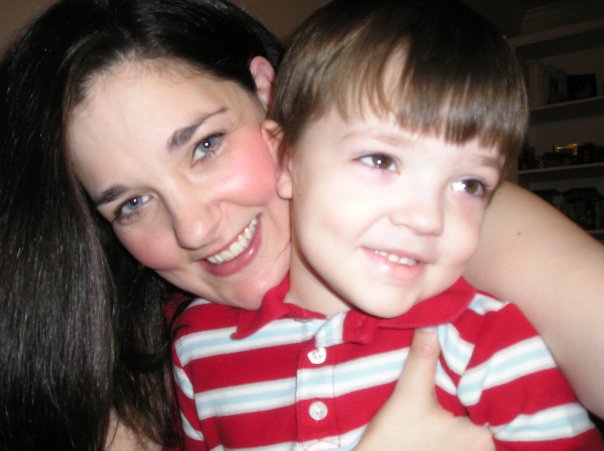
When You Should Consider Switching Pediatricians
 If you have been thinking about switching Pediatricians, then you should do it! Switching Pediatricians can be a hassle and cost money, but it can be worth it. Amelia wrote about switching Ob/Gyns, but what about your children’s doctor?
If you have been thinking about switching Pediatricians, then you should do it! Switching Pediatricians can be a hassle and cost money, but it can be worth it. Amelia wrote about switching Ob/Gyns, but what about your children’s doctor?
My family recently switched Pediatricians 6 days after my second baby was born. Our first doctor, “Dr. Passive Aggressive” is a competent physician and is a part of a large pediatric group. I wrote about how to choose a Pediatrician and followed a lot of those guidelines. We interviewed the doctor, the office is open on Saturdays, there is a separate area for sick kids, and she seemed nice enough.
Our opinion of Dr. Passive Aggressive started to change when we told her that we were having our second at a Birth Center and asked her what her protocol would be after the birth. She was not familiar with birth centers or home births at all. She asked what would happen in the case of an emergency and how the baby is taken care of after the birth. She was not satisfied with my answers and gave me a stern warning “that it only takes a few seconds for a baby to code.” We didn’t really finish the conversation, because she just left the room. This should have been my first clue.
My husband left the conversation with a lot of fear and doubt. I talked with Amelia about it and we chalked it up to that she wasn’t familiar with Birth Centers. I also spoke with my Midwife and she calmed our fears and explained that they do a complete checklist with newborns.
We brought my son into Dr. Passive Aggressive’s office one day after he was born, per her protocol. During that appointment she made many passive aggressive statements like, “I usually prefer to do circumcisions in the hospital.” “Did they do a hearing test? You usually are not allowed to leave the hospital without Test XYZ.” She picked apart the checklist from the birth center. She made us feel like it was really inconveniencing her to do things outside of the hospital. She was negative about the entire experience, even though my son was perfectly healthy and I was showered and dressed and sitting in her office 24 hours after I gave birth. She never even said, “Congratulations.”
My husband and I decided to switch Pediatricians. Dr. Passive Aggressive was competent, but clearly not inline with our birthing philosophy. We decided that we shouldn’t feel stupid or belittled when we left a doctor’s office.
We paid $35 dollars to get copies of our children’s records and went to a new Pediatrician across the street. The new doctor, Dr. Nice, and the new office has been great. Dr. Nice has never made us feel bad for waiting to do the circumcision and hearing test. She also doesn’t make us feel stupid when we ask questions. The new office also really appreciated the detailed newborn checklist from the birth center. The front desk is warm and friendly. My daughter has been ill and they called yesterday to check on her. I have never had a doctor do that. A nice bonus is that my daughter loves to play in their waiting room. I never knew that the grass really was greener on the other side.
There are many reasons to switch doctors:
- You move and need to find a doctor closer to you.
- You aren’t in agreement with how they are treating your child’s illness.
- You feel like you have to lie about your parenting style (like attachment parenting), because you know they don’t agree with you.
- The front office does not provide good customer service.
- It is difficult to make appointments.
- It is difficult to speak with a nurse when you have a question.
- You don’t feel comfortable asking the doctor questions.
Have you ever switched Pediatricians? If so, why did you?
Share the fun: Email + Del.icio.us + Digg + Technorati

 My second baby is 6 weeks old and I am in Survival Mode until he can sleep longer than 4 hours at a time. It is tiring managing two kids schedules, breastfeeding, diagnosing illnesses, dispensing medications around the clock, not to mention any regular household chores, and just getting to say hello to the husband. I really never expected it to be this difficult adjusting to 2 children.
My second baby is 6 weeks old and I am in Survival Mode until he can sleep longer than 4 hours at a time. It is tiring managing two kids schedules, breastfeeding, diagnosing illnesses, dispensing medications around the clock, not to mention any regular household chores, and just getting to say hello to the husband. I really never expected it to be this difficult adjusting to 2 children. In August 2008, our three year old son, Andrew, was diagnosed with Type 1 Diabetes. For weeks he had been drinking tons of water, urinating much more than he was taking in and was eating everything in sight. We knew something was going on and when we got his diagnosis we weren’t really sure what we were up against.
In August 2008, our three year old son, Andrew, was diagnosed with Type 1 Diabetes. For weeks he had been drinking tons of water, urinating much more than he was taking in and was eating everything in sight. We knew something was going on and when we got his diagnosis we weren’t really sure what we were up against.
 My first reaction was, “Okay! Bring on the formula!” But the more I thought about it, the more the mantra replayed itself in my mind. I knew I had to give this new meal plan a try. That first day I hunted around my house, looking for something, ANYTHING I could eat. I didn’t come up with much.
My first reaction was, “Okay! Bring on the formula!” But the more I thought about it, the more the mantra replayed itself in my mind. I knew I had to give this new meal plan a try. That first day I hunted around my house, looking for something, ANYTHING I could eat. I didn’t come up with much.




